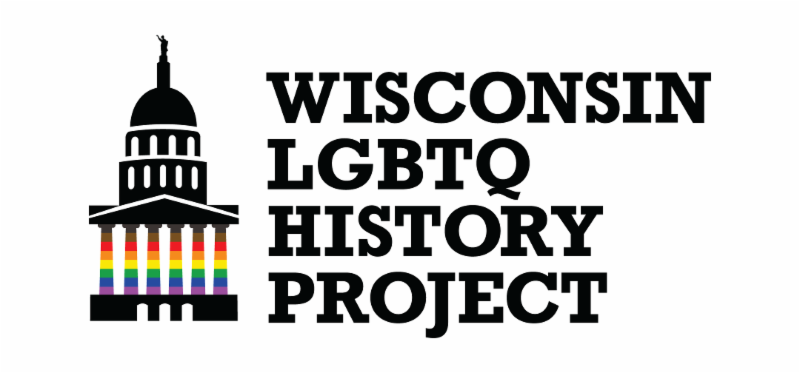Wisconsin LGBTQ History Project partners with Radio Milwaukee on “BeSeen”
Six episode podcast explores decades of Milwaukee LGBTQ history
Milwaukee, WI. – Radio Milwaukee has partnered with the Wisconsin LGBTQ History Project on a six episode podcast called “Be Seen” documenting the state’s LGBTQ history, the station announced Monday.
The podcast will be hosted by Radio Milwaukee Director of Content Nate Imig and curator for the Wisconsin LGBTQ History Project Michail Takach.
The first episode of “Be Seen” will be released Monday, May 23.
“We are honored to be working in partnership with the Wisconsin LGBTQ History Project on the preservation of these stories,” shared Radio Milwaukee Director of Content and podcast host Nate Imig. “Without audio documentation some of these important events, like that of Josie Carter and her defense of the Black Nite, could be lost to time.”
The podcast’s six episodes will be released every Monday through June 27. The stories will also be shared in Radio Milwaukee’s “Uniquely Milwaukee” podcast each week.
Episode 1: When was Wisconsin’s first LGBTQ Uprising?
Eight years before Stonewall, Milwaukee had its own LGBTQ uprising at the Black Nite bar. Featuring archived audio from the University of Wisconsin – Milwaukee, this episode shares the story of Josie Carter, a gender nonconforming “queen” who defended her home bar when it was targeted by homophobic sailors in August 1961.
Episode 2: When was it illegal to be LGBTQ in Wisconsin?
Bob Schmidt, owner of the M&M Club, speaks about opening the now closed bar when it was illegal to be gay and being among the first establishments to have open windows.
Episode 3: When was Milwaukee’s first drag show?
Wisconsin drag legends BJ Daniels and Tempest Heat share firsthand experiences entertaining in the 1980s to the present, particularly how the community came together through drag benefits during the AIDS crisis, while exploring drag history across seven generations.
Milwaukee natives Maryann “Flash” Gorski and Diane “Legs” Gregory recount two generations of Milwaukee’s lesbian and bisexual nightlife scene. Walker’s Pint owner Bet-Z Boenning speaks to Milwaukee having one of only 11 women’s bars left in the country today.
Episode 5: What is Wisconsin’s longest running gay bar?
This is It owner George Schneider talks about carrying on a five-decade legacy for an intentionally inclusive community, while Michail speaks about his interviews with original owners, June and Joe Brehm.
Episode 6: How did Wisconsin respond to HIV and AIDS?
We hear from two leaders of vital organizations in Wisconsin’s response: Sue Dietz, the first executive director of AIDS Resource Center of Wisconsin, and Mark Behar, one of the founders of BESTD Clinic. We also hear how today’s front line community health leaders are navigating HIV/AIDS prevention and treatment with innovation and connection.
Episodes of “Be Seen” will be available for listening on all major podcast platforms, including Spotify and Apple Podcasts, in addition to radiomilwaukee.org.
To celebrate the podcast, Radio Milwaukee will host a launch party at Saint Kate – The Arts Hotel on Thursday, June 2 from 5 to 7 p.m. Imig and Takach will be on-site along with curators of Saint Kate’s current “Legends of Drag” exhibit from the Museum of Wisconsin Art and “Queer Mythologies: Transabstractions” by Nykoli Koslow. RSVP for the free event here.
NOTE: This press release was submitted to Urban Milwaukee and was not written by an Urban Milwaukee writer. While it is believed to be reliable, Urban Milwaukee does not guarantee its accuracy or completeness.
Mentioned in This Press Release
Recent Press Releases by Wisconsin LGBTQ History Project
“Beacons of the Bay” Documentary Premieres Saturday, January 31
Dec 22nd, 2025 by Wisconsin LGBTQ History ProjectProject honors the lifetime experiences of eight living LGBTQ elders
We’re proud to be named Wisconsin Nonprofit Organization of the Year!
Nov 14th, 2025 by Wisconsin LGBTQ History Project2025 Business Awards reaffirm our 30-year commitment to local LGBTQ heritage
Explore over 550 historic LGBTQ sites — from anywhere!
Oct 3rd, 2025 by Wisconsin LGBTQ History ProjectNew Places site invites you on a tour of Wisconsin queer history






















